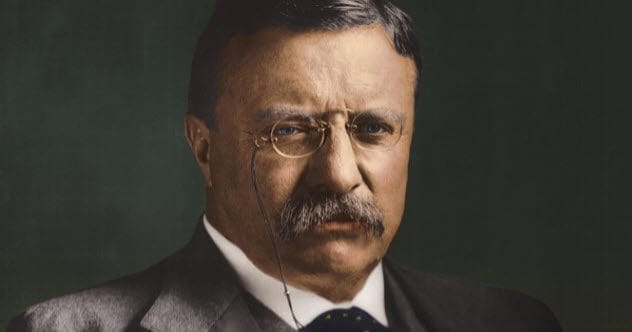Theodore Roosevelt, or TR as he’s often called, stands as one of America’s most vibrant and dynamic presidents. His larger-than-life persona, from Rough Rider to Nobel Peace Prize winner, is legendary. We remember his booming voice, his charge up San Juan Hill, and his conservation efforts. But beneath the surface of this iconic figure lies a life marked by profound personal sorrows and heartbreaking challenges. While his accomplishments are well-documented, the deep personal pains he endured often get overshadowed. Let’s delve into ten lesser-known, heartbreaking facts that shaped the man behind the legend.
10. Political Betrayal: His Son-in-Law’s Opposition in 1912
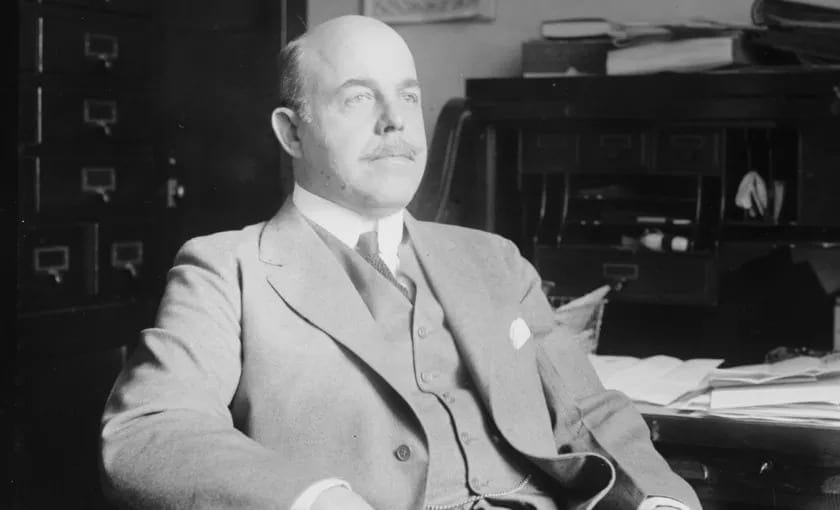
After leaving the presidency, Theodore Roosevelt grew disappointed with his handpicked successor, Howard H. Taft. TR felt Taft wasn’t living up to his progressive ideals, particularly in curbing big business. This disillusionment spurred Roosevelt to run for an unprecedented third term in 1912 under the “Bull Moose” Party.
Adding a personal sting to this political battle, TR’s own son-in-law, Congressman Nicholas Longworth, opposed his presidential bid. Longworth, married to TR’s fiery daughter Alice, sided with the Republican establishment. While TR might have understood the political maneuverings, it undoubtedly created tension within the family. Alice, fiercely loyal to her father, supported his run, which further strained her already troubled marriage to the philandering Longworth. It was a difficult reminder that even family ties could be tested by political ambition.
9. Family Sorrow: His Beloved Sister’s Physical Affliction
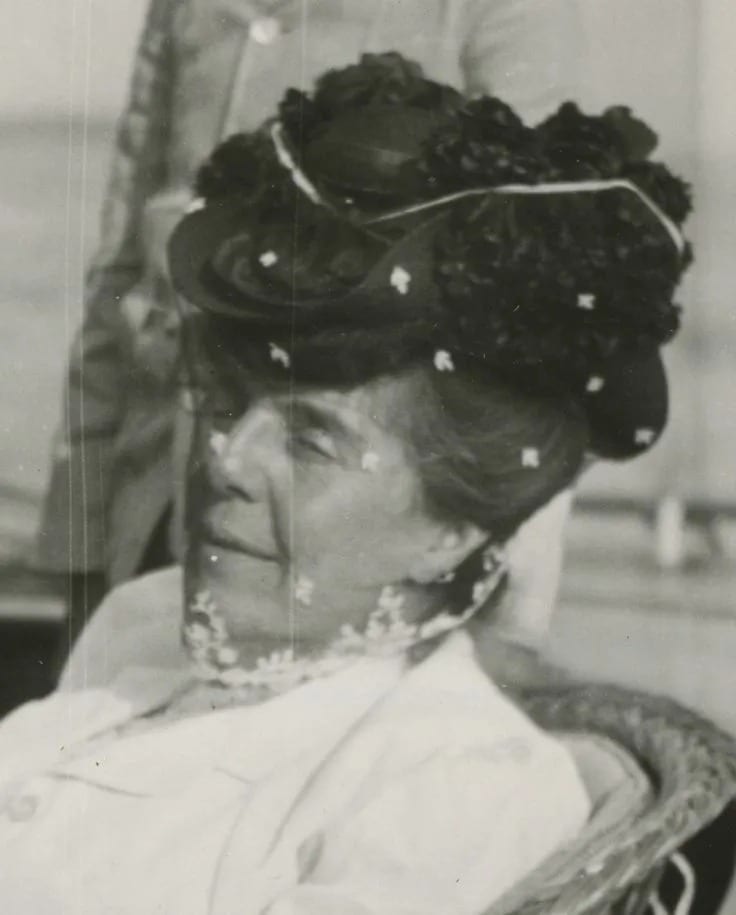
Theodore Roosevelt’s older sister, Anna, fondly known as “Bamie,” was a pillar of strength and intellect within the Roosevelt family. Often described as wise beyond her years, TR himself considered her an adult figure even during her childhood. Many believed that if she had been a man, her sharp mind could have led her to the presidency.
However, Bamie’s life was marked by physical suffering. She was born with Pott’s disease, a form of spinal tuberculosis that led to a curvature of the spine, often referred to then as “hunchback.” She endured painful braces and therapies throughout her youth. Despite these challenges, she was a doting figure, even caring for TR’s first daughter, Alice, for two years after her mother’s death. Bamie’s quiet endurance and devotion to her family, in the face of her own pain, highlight a poignant aspect of the Roosevelt family story.
8. Early Struggles: A Sickly and Nearsighted Childhood
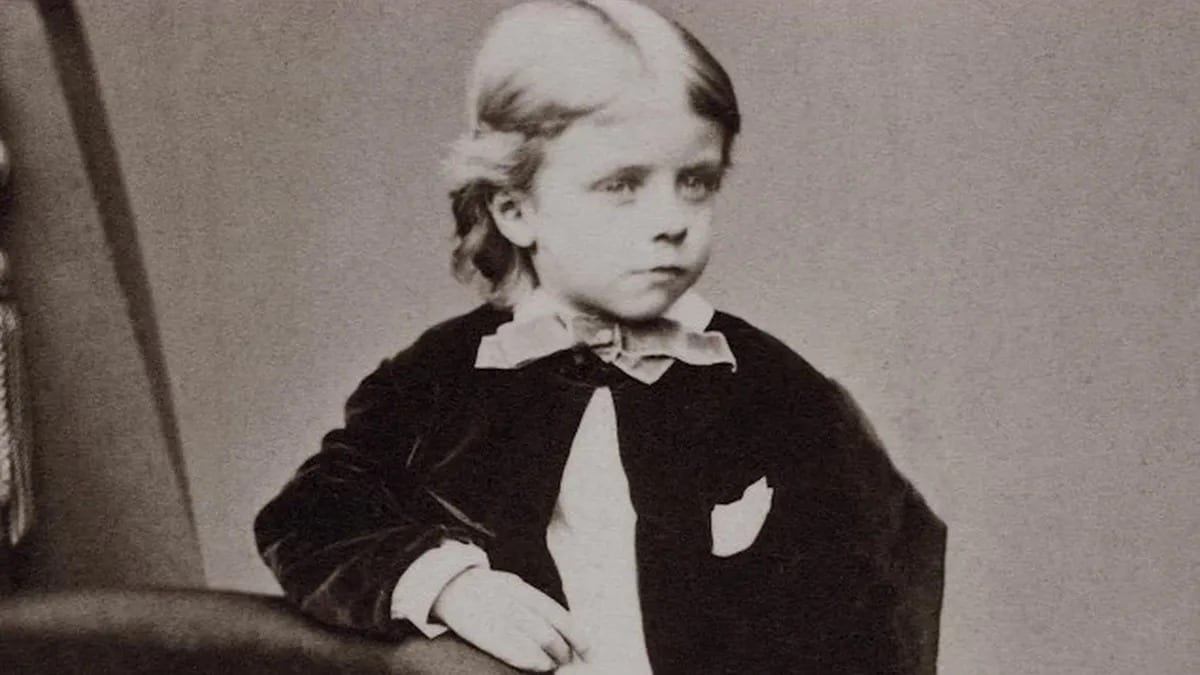
The robust, energetic image of Theodore Roosevelt we know today wasn’t a given. In his youth, young “Teedie” was a frail and sickly child. He suffered from severe, often debilitating asthma attacks, which were poorly understood at the time. His childhood was frequently interrupted by these attacks, along with colds, headaches, and stomach issues.
Determined to overcome his physical weaknesses, his father installed exercise equipment in their home. With characteristic Rooseveltian willpower, Teddy threw himself into physical training, gradually building his strength. This resolve stayed with him. Years later, when doctors advised a sedentary life due to a supposed weak heart after his Harvard graduation, TR famously responded by climbing the Matterhorn. His triumph over childhood illness was a testament to his indomitable spirit.
7. A Father’s Choice: Civil War Service Avoided
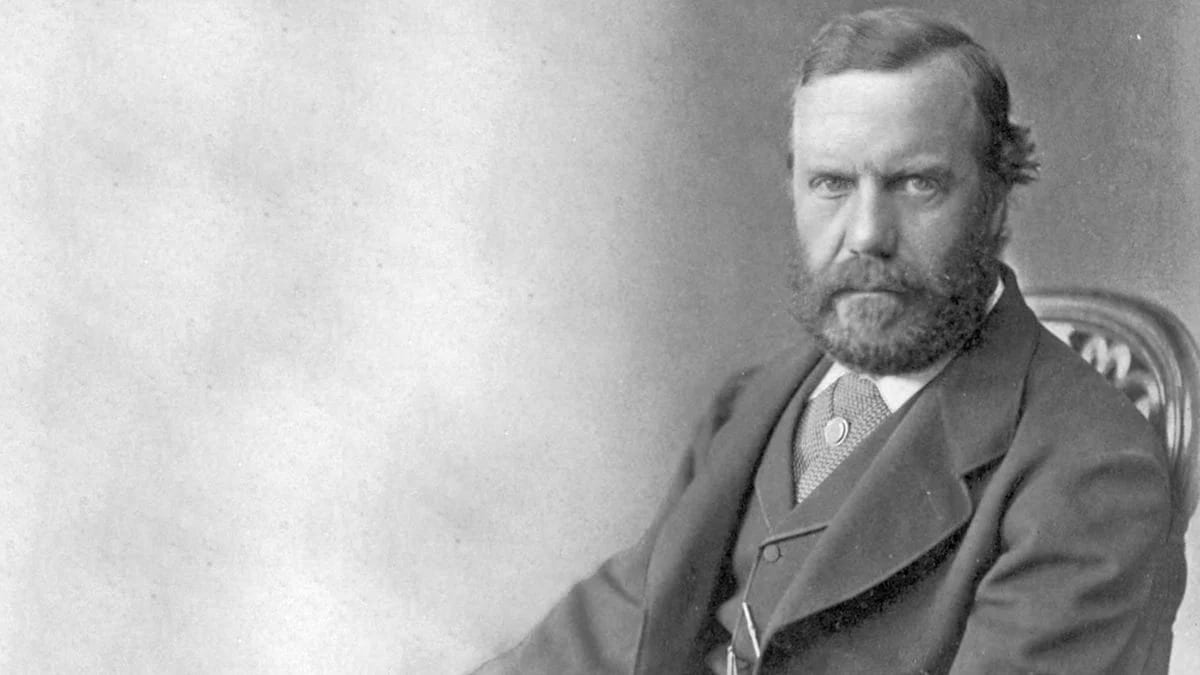
Theodore Roosevelt deeply admired his father, Theodore Sr., once calling him “the best man I ever knew.” However, a shadow hung over his father’s legacy: he had hired a substitute to serve in his place during the Civil War. This was a common practice among the wealthy at the time, but it was a source of quiet discomfort for TR.
Theodore Sr.’s decision was largely influenced by his Southern-born wife, Mittie, whose brothers fought for the Confederacy. While his father did contribute to the Union cause in other ways, such as establishing a program for soldiers to send pay home, the lack of combat service was something TR was keenly aware of. Some historians suggest that TR’s own eagerness to prove his valor in the Spanish-American War was partly driven by a desire to compensate for this perceived gap in the family’s honor.
6. Brushing with Death: Surviving an Assassin’s Bullet
Teddy Roosevelt’s reputation for toughness was cemented on October 14, 1912, in Milwaukee. While campaigning for president on the Progressive Party ticket, he was shot at close range by John Schrank, a saloonkeeper from New York. The .38 caliber bullet struck TR in the chest.
Incredibly, the bullet’s force was slowed by his thick overcoat, a fifty-page speech manuscript folded in his breast pocket, and his metal eyeglasses case. Despite the serious wound, Roosevelt insisted on delivering his scheduled speech. “Friends, I shall ask you to be as quiet as possible,” he told the stunned crowd. “I don’t know whether you fully understand that I have just been shot.” With blood seeping through his shirt, he spoke for over an hour before agreeing to go to the hospital. Doctors decided it was safer to leave the bullet lodged in his chest, and TR carried it with him for the rest of his life.
5. Another Son Lost: Kermit’s Tragic Suicide
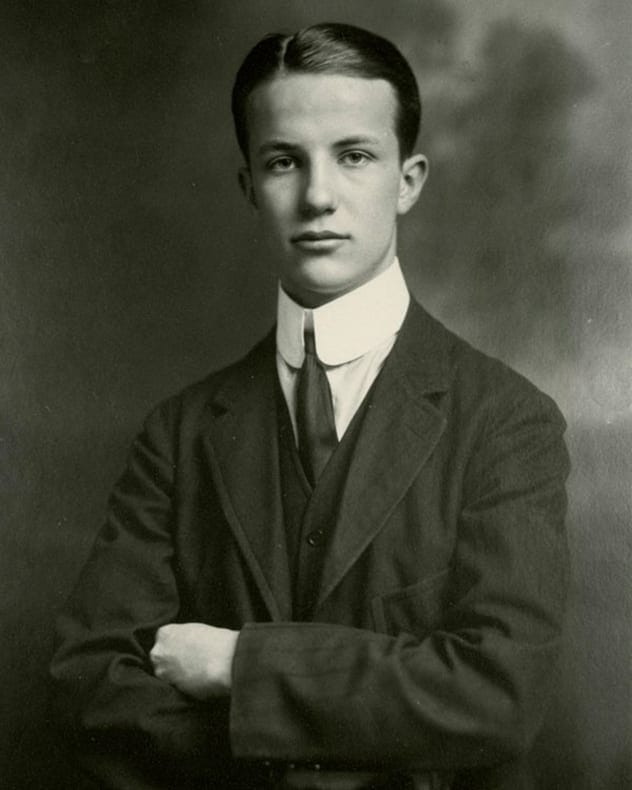
The Roosevelt family’s contributions and sacrifices during wartime were significant. TR’s second son, Kermit, served with distinction in World War I. After the war, he ventured into business, founding the Roosevelt Steamship Company. However, Kermit battled severe personal demons, including chronic depression and alcoholism.
The Great Depression hit his business hard, and his personal life was further complicated by extramarital affairs. His struggles became so severe that his brother Archie once had him briefly institutionalized. Despite being deemed unfit for combat in World War II, Kermit sought and received a commission, serving in Alaska. Tragically, unable to overcome his inner turmoil, Kermit Roosevelt took his own life in June 1943. It was another devastating blow to the Roosevelt family.
4. The Deepest Cut: Quentin’s Death in World War I
Theodore Roosevelt was an early and vocal advocate for American entry into World War I, often criticizing President Woodrow Wilson’s initial neutrality. When the U.S. finally joined the conflict, TR was immensely proud that all four of his sons volunteered for military service.
However, this patriotic pride turned to crushing grief when his youngest son, Quentin, a fighter pilot, was shot down and killed over France in July 1918. TR was devastated. He felt a profound sense of guilt, believing the war he had championed had led to his son’s death. His vibrant spirit seemed to dim. Friends and family noted a significant decline in his health and demeanor. He would reportedly visit the stables, looking at Quentin’s beloved horses, murmuring his son’s nickname. Theodore Roosevelt never truly recovered from this loss and died just six months later.
3. A Mother’s Absence: The Unspoken Grief for Alice Lee
Valentine’s Day 1884 was a day of unimaginable tragedy for Theodore Roosevelt. Just two days after giving birth to their daughter, Alice Lee Roosevelt, TR’s beloved first wife, Alice Hathaway Lee, died from kidney failure, an undiagnosed Bright’s disease exacerbated by the pregnancy. Adding to the horror, his mother, Mittie Roosevelt, died of typhoid fever in the same house on the same day.
TR was utterly shattered by the loss of his young wife. In his diary, he drew a large ‘X’ and wrote, “The light has gone out of my life.” So profound was his grief that he rarely spoke of Alice Hathaway Lee again. He removed pages mentioning her from his diaries and burned their letters. Tragically, he never told their daughter, Alice, anything about her mother. This silence undoubtedly affected young Alice, who grew into a famously independent and unconventional woman, seeking an identity separate from the unspoken sorrow.
2. Amazonian Ordeal: A Brush with Suicide in the Jungle
In late 1913, long after his presidency, TR embarked on a perilous expedition into the Amazon rainforest with his son Kermit. Their mission was to chart the unexplored “River of Doubt.” The journey was far more dangerous than anticipated. For months, the party faced disease, starvation, and hostile terrain.
During this grueling trek, TR contracted a severe leg infection and high fever, becoming gravely ill. Believing he was a burden to the expedition and adhering to his code that one man should not endanger an entire group, he considered being left behind, a virtual death sentence, or even taking his own life. It was Kermit’s unwavering refusal to leave his father that spurred TR to fight on. They eventually emerged from the jungle in April 1914, having mapped the river, which was later renamed “Rio Roosevelt.” Though he survived, the ordeal took a permanent toll on his health.
1. Jungle Justice: Leaving a Murderer to His Fate
The River of Doubt expedition was fraught not only with natural dangers but also human conflict. During the journey, one of the Brazilian porters, known as Julio, murdered another crew member. TR, with his strong sense of justice, believed the murderer should be killed.
Julio fled into the dense jungle after the crime. The expedition members, wary of an attack, pressed on. A few days later, as they navigated the treacherous river, they spotted Julio on the riverbank, begging to be taken aboard their canoes. The Brazilian leader of the expedition told Julio they couldn’t stop and to wait for TR. However, the subsequent canoes, including the one carrying TR and Kermit, passed by without stopping or speaking to the desperate man. TR later wrote grimly of the incident, stating, “Surely that murderer was in a living hell.” He was left to face the unforgiving jungle alone, a stark example of the harsh realities of the expedition.
Theodore Roosevelt’s life was a tapestry woven with incredible triumphs and profound sorrows. These heartbreaking moments, while painful, also reveal the depth of his character and the resilience that allowed him to become one of history’s most memorable figures. His ability to persevere through immense personal loss and physical suffering is as much a part of his legacy as his political achievements.
What are your thoughts on these lesser-known aspects of Teddy Roosevelt’s life? Do these stories change how you view him? Leave your comment below!


